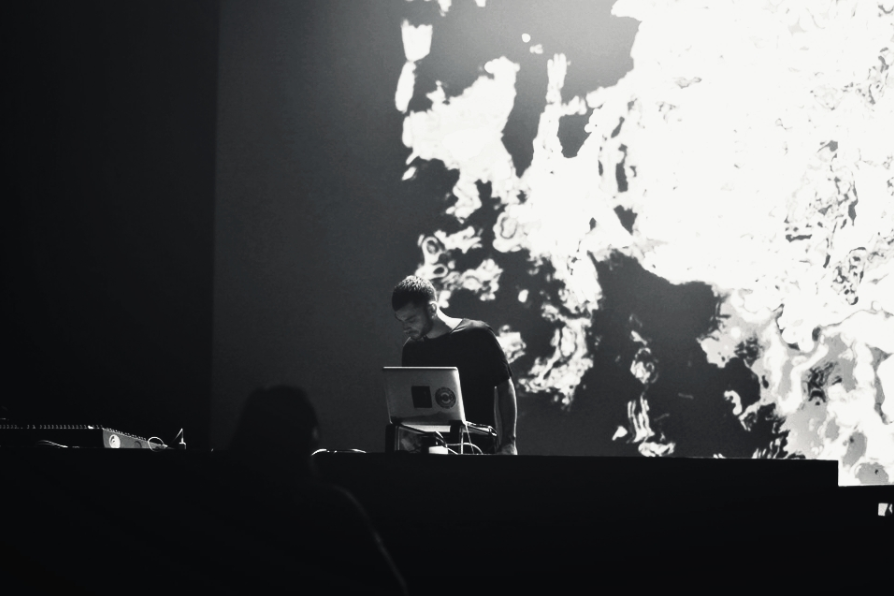Arboretum Records: bridging the gap between art and electronica
This post was written by admin

In the world of electronic music, artist Marco Gabbani has made a name for himself by seamlessly blending a diverse range of influences into his creations. His unique ability to weave elements from genres like metal, tribal, and world music into electronic and techno compositions has earned him a reputation for musical innovation and a distinct sonic identity. In this exclusive interview, we delve into Marco’s musical landscape and the evolution of his sound, as well as the intriguing concept behind Arboretum Records, a label he co-founded.
TF: You developed quickly a vast range of techno forms, always remaining deeply coherent but blurring the lines in the same way. How would you describe your musical landscape?
MG: Well, as you said, you can track back many different influences in my musical landscape, as they all were little pieces of my personal musical path and evolution. This is even more clear when it come to my productions.
There you can clearly spot for example some metal or tribal, world-music influences which come from the time I was playing in bands or from the pagan music culture of south Italy, blended into a more Electronic or Techno track form.
More in general, what i love the most is to create a temporal bridge between this two worlds, ancient and future. I guess that’s the best key which you can interpret my music with.
TF: Could you sum up a bit what led you to create Arboretum? What was the main idea behind the label?
MG: Arboretum was born in the 2014 as a collaboration between me and the visual designer Andrea Familari / Fax. The project was born with the idea of creating a dialogue between contemporary electronic music and visual art in order to give home to all the music laying in the grey area between clubs electronic music and sound-art for galleries or movies.
Back then we thought to conceptually engages the Arboretum (Botanical Garden) as a metaphor that mirrors the often controversial state of things between humans, technology and nature.
TF: What are the forthcoming projects for Arboretum?
MG: We will release next fall the second chapter of “Spectral Decay” a compilation project born in 2018 with a lot of new exciting names. Later on we will have a collaboration EP by two of my favourite artists in the scene right now, followed by very interesting remixes.
TF: After this first one, how do you plan to build your productions in the future ? Does it represent a turn or will you stick to the same perspectives?
MG: My upcoming “Terrarium” EP will be released on vinyl on VOIDANCE next fall. Besides being quite different production-wise this work still carry on some of the aesthetic proposed in Sycomore Ep which was released in 2015 alongside Kerridge Remix, as i wanted to propose a natural evolution of my sound.

Nevertheless my current productions are moving fast out those prospectives, going more towards electro, breakbeat, ebm and grimes.
TF: Usually you play DJ sets in your presentations, do you plan to develop a live act?
MG: Besides loving Dj-ing, i often play live act, most of which are audio/visual show with the the visual artists Andrea Familari/Fax. Right now i am finalizing the live versions of my upcoming ep which i will present in clubs and festival from next fall on.
TF: What do you think is the role of new technology in composing music? Do you rely more on digital or analog sound?
MG: Technology as always being a primary actor in the electronic music scene and nowadays more than ever. About the digital/analog dilemma I personally rely on both, depending on what i am using such technology for. For example I love how analog/modular EFX or how analog synthetizers or guitars sound but in my prospective i couldn’t do much with it without a digital DAW or an Equalizer Plugin.
TF: How do you perceive the techno scene today? What are its strengths and weaknesses for you?
MG: In my opinion techno, intended as a cultural-scene made of human beings, has always been a powerful medium to rethink humanity and propose different models in matter of sexuality, civil rights and respect for diversities.
As direct consequence of this, many new music influences are coming across the original idea of techno but i guess that besides the subjectivity of each tastes, this is a natural process in art or culture as they attempt describing our reality and who we are.
Listen exclusively the 295th episode.
